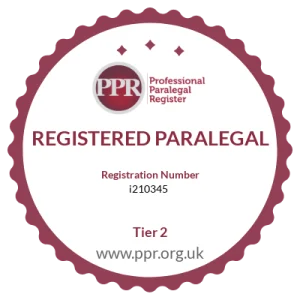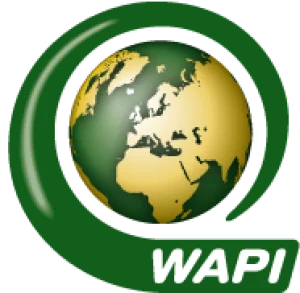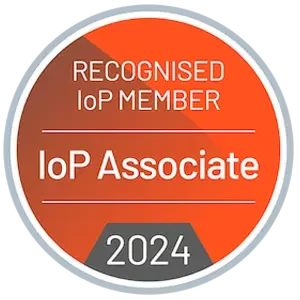The Hague Service Convention of 1965 was designed to simplify and standardize the international service of judicial and extrajudicial documents. One of its most debated provisions, Article 10, allows alternative service methods such as service by mail, service through judicial officers, or direct service through agents — but only if the receiving country does not object. Some nations, however, object to all forms of Article 10 service. In these jurisdictions, litigants must serve documents exclusively through the designated Central Authority. Failure to comply can render service invalid and jeopardize the enforceability of judgments.
Quick Reference Guide: Countries that Require “Central Authority–Only” Service under the Hague Service Convention
The following Contracting States have a blanket objection to all of Article 10 (a), (b), and (c). In each, service via the Article 5 Central Authority is the standard Convention route.
- Argentina (objects to Article 10).
- Armenia (objects to Article 10).
-
Austria (objects to Article 10).
Azerbaijan (objects to Article 10).
-
Brazil (reservations opposing Articles 8 and 10; Central Authority route only).
-
Bulgaria (objects to Article 10).
-
China (People’s Republic of China, Mainland) (opposes the methods of service in Article 10; note that Hong Kong and Macao have separate regimes and do not share the Mainland’s full objection).
-
Croatia (opposed to the mode of service specified in Article 10).
-
Czech Republic (succeeded to former Czechoslovakia’s declarations: no service by post or by foreign judicial/other competent persons under Article 10).
-
Germany (objects to the methods of service in Article 10).
-
Hungary (opposed to service specified in Article 10).
-
India (objects to Article 10 methods).
-
Japan (historically objected to 10(b) and 10 ( c ); in 2018 added an explicit objection to 10(a), closing the door to mail service as well).
-
Kuwait (opposes methods of service in Articles 8 and 10).
-
Lithuania (objects to ways of serving provided in Article 10).
-
Malta (objects to Article 10).
-
Mexico (objects to Article 10; service must proceed via Central Authority).
-
Moldova (objects to Article 10 methods).
-
Montenegro (objects to Article 10; Central Authority route).
-
Nicaragua (objects to Article 10 methods).
-
North Macedonia (opposes the mode of service specified in Article 10).
-
Norway (opposed to methods mentioned in Articles 8 and 10).
-
Paraguay (declares opposition to Article 10 methods).
-
Poland (declares opposition to Articles 8 and 10).
-
Republic of Korea (South Korea) (objects to Article 10 methods).
-
Russian Federation (objects to Article 10; note: Russia has also suspended/limited judicial cooperation with some States—confirm current practicability with counsel).
-
Singapore (objects to methods of transmission set out in Article 10).
-
Slovakia (succeeded to Czechoslovakia’s full objection to Article 10).
-
Türkiye (Turkey) (declares its opposition to Article 10 methods).
-
Ukraine (objects to Article 10).
Important non-members & mixed regimes. Some major jurisdictions (e.g., Indonesia, United Arab Emirates) are not parties to the Convention; which means, service depends on local law, letters rogatory, treaties, or court-ordered alternatives. Others are Contracting States but allow some parts of Article 10 — for example, some countries permit 10(a) postal channels but not 10(b)/(c); United Kingdom and United States generally do not object to Article 10). These countries do not fall under the “Central Authority-only group” and thus aren’t listed in the Quick Reference Guide being shown in this article.
What “Central Authority–only” really means
Under the Convention, every Contracting State designates a Central Authority to receive incoming requests for service from abroad. When a State objects to all of Article 10 (a), (b), and (c), it is saying:
-
You may not serve defendants in that State by ordinary mail/courier under Article 10(a).
-
You may not go directly to a local bailiff, court officer, huissier, sheriff or similar under Article 10(b).
-
You may not hire private agents or process servers to drop papers under Article 10(c).
In short, your default (and usually only Convention-compliant) lane is to prepare a formal Article 5 request to the Central Authority, attach translations if required, and wait for official execution and a Convention certificate of service. Some domestic procedural rules might allow a judge-ordered alternative (e.g., service by publication or electronic means), but those are outside Article 10 and are typically granted sparingly—often only after diligent attempts at conventional service.
Why do some States disallow Article 10?
Three recurring themes:
-
Sovereignty & procedural control. Many States prefer to keep service of foreign judicial documents within an official channel to ensure compliance with domestic due-process standards and public order.
-
Uniformity for recipients. Centralized service can protect defendants from confusing or inconsistent private attempts, ensuring that what arrives looks “official” and meets local formalities.
-
Language & translation policies. Where a State requires service in its official language(s), Central Authority workflows better police those requirements.
Practical Tips for Practitioners
-
Plan ahead: Central Authority service can take 6–12 months in some countries (e.g., India and Mexico).
-
Budget for translations: Certified translations into Arabic, Chinese, Turkish, Russian, or Spanish are often mandatory.
-
Track submissions: Always request a receipt from the Central Authority to prove compliance.
-
Consult experts: Working with experienced process servers can help navigate delays and bureaucratic requirements.
A few spotlight examples (what the declarations actually say)
-
Japan. For many years Japan objected to 10(b) and ( c ) but left 10(a) unaddressed, prompting debate about mail service. In 2018, Japan filed a declaration explicitly objecting to Article 10(a) as well. That means no direct mail service, no direct service by judicial officers, and no service through agents—Central Authority only. HCCH
-
Germany. Germany’s declaration is straightforward: it objects to Article 10, closing the door on mail, private process servers, and direct judicial-officer service. Practically, your only standard Hague lane is the Central Authority (or a German court-approved alternative under domestic law after conventional channels fail).
-
China (Mainland). The People’s Republic of China opposes Article 10 methods. Remember that Hong Kong and Macao have separate declarations and practices under the Convention; do not assume Mainland rules apply there.
-
India. India’s declaration objects to Article 10, making the Central Authority route mandatory for Hague service. Expect translation issues and lead time.
-
Singapore. Singapore’s declaration objects to Article 10 methods, so service should be routed through the Central Authority. (Singapore joined the Convention with entry into force on December 1, 2023.)
Central Authority Service in Perspective
While many Hague member states permit flexible service methods under Article 10, countries like China, India, Mexico, Turkey, Russia, Venezuela, Egypt, Kuwait, and Pakistan mandate Central Authority–only service. Legal practitioners must strictly follow these rules to ensure valid service and enforceable judgments.
For businesses and law firms dealing with cross-border litigation, compliance is non-negotiable. Attempting shortcuts such as service by mail or through local agents will almost always backfire in these jurisdictions.
Advantages of Hiring a Process Server in Countries Requiring Central Authority Service
Even if a country prohibits Article 10 (so you can’t use direct service like mail or process server delivery), there are still big advantages to hiring a professional process server. Here are the key ones:
-
Correct Procedure Compliance
-
A professional ensures documents are submitted to the Central Authority (or through other accepted formal channels) without mistakes that could delay or invalidate service.
-
-
Avoiding Rejection
-
Central Authorities often reject requests due to small errors (wrong forms, missing translations, improper attachments). Process servers understand the technical requirements and help prevent rejections.
-
-
Translation & Document Handling
-
Process servers coordinate certified translations where required and prepare paperwork in the exact format demanded by the country.
-
-
Monitoring & Updates
-
Central Authority service can take months. Process servers track the request, follow up with local officials, and keep clients updated.
-
-
Proof of Service
-
They make sure an official Certificate of Service is obtained and properly delivered, which is crucial for court acceptance.
-
-
Knowledge of Alternatives
-
If Central Authority service fails or takes too long, process servers advise on letters rogatory, diplomatic channels, or court-approved substitutes.
-
-
Saves Time & Resources
-
Without expertise, law firms risk months of wasted effort. Process servers streamline the process and shorten delays.
-
How Stellar Konsulting Can Help
At Stellar Konsulting, we specialize in navigating the complexities of international service of process. Our team ensures that your documents are served correctly under the Hague Service Convention, including in Central Authority–only countries. From preparing certified translations to tracking submissions with foreign authorities, we manage every step of the process so you don’t have to.
Please call Stellar Konsulting at the phone numbers listed below or email us at operations@stellarkonsulting.com for an obligation-free quote covering the timelines, options and costs for international service of process.
📞 EMEA: +44 (20) 38905643
📞 USA: +1 (213) 786 1161
📞 Asia: +92 313-780-6280
📞 UK: +44 (20) 38905643
📞 Australia, New Zealand and Far East Asia: +61 2 7259 7299



















